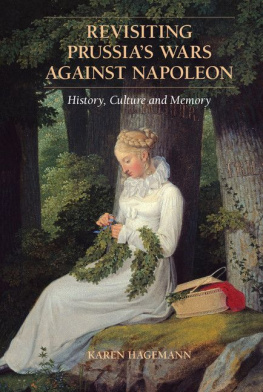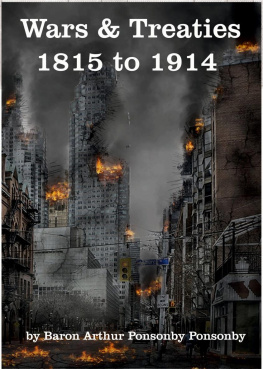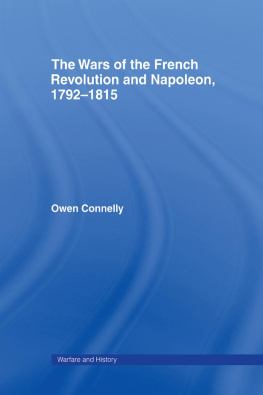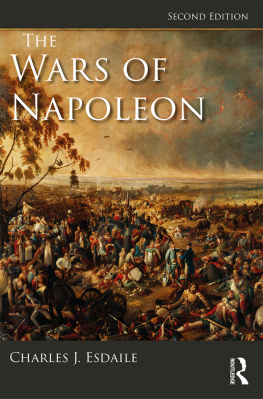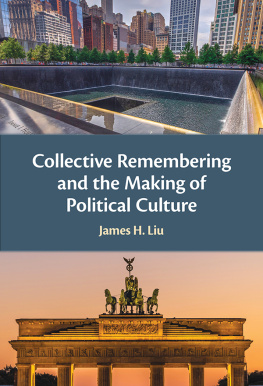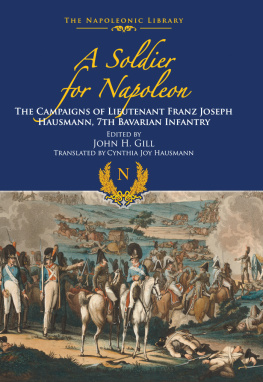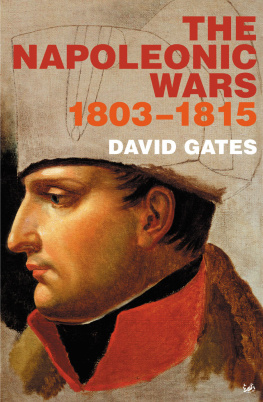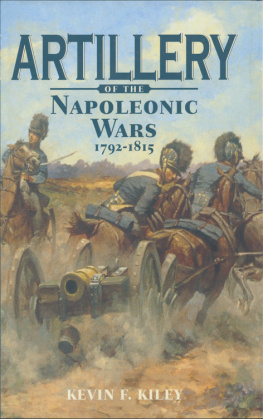Revisiting Prussias Wars against Napoleon
In 2013, Germany celebrated the bicentennial of the so-called Wars of Liberation of 181315. These wars were the culmination of the Prussian and German struggle against Napoleon between 1806 and 1815, which occupied a key position in both German national historiography and memory. Although these conflicts have been analyzed in thousands of books and articles, much of the focus has been on the military campaigns and alliances, emerging sovereign states and reform movements and early articulations of modern nationalism. Karen Hagemann argues that we cannot achieve a comprehensive understanding of these wars and their importance in collective memory without recognizing how the interaction of politics, culture and gender influenced these historical events and continues to shape later recollections of them. She thus explores the highly contested discourses and symbolic practices by which individuals and groups interpreted these wars and made political claims, starting in the period itself and ending with the centenary in 1913.
KAREN HAGEMANN is the James G. Kenan Distinguished Professor of History at the University of North Carolina at Chapel Hill. She has published widely in Modern German and European history and gender history. Her recent co-edited books include Gendering Modern German History: Rewriting Historiography (2007); Representing Masculinity: Male Citizenship in Modern Western Culture (2007); Gender, War, and Politics: Transatlantic Perspectives, 17751830 (2010); and War Memories: The Revolutionary and Napoleonic Wars in Modern European Culture (2012).
Revisiting Prussias Wars against Napoleon
History, Culture and Memory
Karen Hagemann
University of North Carolina at Chapel Hill
and
Translations by
Pamela Selwyn
32 Avenue of the Americas, New York, NY 10013-2473, USA
Cambridge University Press is part of the University of Cambridge.
It furthers the Universitys mission by disseminating knowledge in the pursuit of education, learning and research at the highest international levels of excellence.
www.cambridge.org
Information on this title: www.cambridge.org/9780521152303
Karen Hagemann 2015
This publication is in copyright. Subject to statutory exception and to the provisions of relevant collective licensing agreements, no reproduction of any part may take place without the written permission of Cambridge University Press.
First published 2015
Printed in the United States of America
A catalog record for this publication is available from the British Library.
Library of Congress Cataloging in Publication data
Hagemann, Karen.
Revisiting Prussias wars against Napoleon : history, culture and memory / Karen Hagemann,
University of North Carolina, Chapel Hill; translations by Pamela Selwyn.
pages cm
Includes bibliographical references and index.
ISBN 978-0-521-19013-8 (hardback) ISBN 978-0-521-15230-3 (pbk.)
1. Germany History 18061815. 2. Collective memory Germany. 3. Napoleonic
Wars, 18001815 Influence. 4. Wars of Liberation, 18131814 Influence. 5. National
characteristics, German. 6. Prussia (Germany) History, Military 19th century. I. Title.
DD419.H27 2015
940.270943dc23 2014043086
ISBN 978-0-521-19013-8 Hardback
ISBN 978-0-521-15230-3 Paperback
Cambridge University Press has no responsibility for the persistence or accuracy of URLs for external or third-party Internet Web sites referred to in this publication and does not guarantee that any content on such Web sites is, or will remain, accurate or appropriate.
It is a dreadful barbarism to which we have forced our enemies, through which they in turn forced us to commit atrocities that would never have happened otherwise.
Oh, my beloved friend, my heart stops when I think of this pernicious circle,
which coils itself around millennia of history! Will there never come a time when Man will fully enjoy the privilege of being ennobled above all creatures through the gift of reason;
will freely and cheerfully live up to the duties that flow from this highest form of nobility;
will be allowed to be human, without inhumanity being demanded of him
in the name of familial love, welfare, the fatherland, national honor?
The French officer Marquis Hypolit Drouot dHericourt
in a letter to his German fianc Minna Warburg in the winter of 1812,
cited in Friedrich Spielhagens novel Noblesse oblige (Leipzig, 1888)
Contents
Figures and Maps
Figures
Maps
Abbreviations
| AB | Amts-Blatt der kniglichen kurmrkischen Regierung |
| ADB | Allgemeine Deutsche Biographie |
| AFZ | Allgemeine deutsche Frauen-Zeitung |
| AHR | American Historical Review |
| ALZ | Allgemeine Literatur Zeitung |
| AMZ | Allgemeine Militr-Zeitung |
| BHMW | Beihefte zum Militr-Wochenblatt |
| BLU | Bltter fr Literarische Unterhaltung |
| BN | Berlinische Nachrichten von Staats- und gelehrten Sachen |
| CEH | Central European History |
| DB | Deutsche Bltter |
| DBO | Deutscher Beobachter |
| EHQ | European History Quarterly |
| FB | Freimthige Bltter fr Deutsche, in Beziehung auf Krieg, Politik und Staatswesen |
| FBPG | Forschungen zur brandenburgischen und preuischen Geschichte |
| G&H | Gender & History |
| GB | Die Grenzboten |
| GG | Geschichte und Gesellschaft |
| GMP | Gemeinntziges Magazin fr Prediger auf dem Lande und in kleinen Stdten |
| GWU | Geschichte in Wissenschaft und Unterricht |
| HWJ | History Workshop: A Journal of Feminist and Socialist Historians |
| HZ | Historische Zeitschrift |
| IASL | Internationales Archiv fr Sozialgeschichte der Literatur |
| JfP | Journal fr Prediger |
| JMH | The Journal of Modern History |
| JWH | Journal of Womens History |
| LB | Literaturblatt |
| MfP | Magazin fr Prediger |
| MGM | Militrgeschichtliche Mitteilungen |
| MW | Militair-Wochenblatt |
| ND | Das neue Deutschland |
| NDB | Neue Deutsche Biographie |
| NF | Neue Fakkeln |
| NM | Neuestes Magazin von Fest-, Gelegenheits- und andern Predigten |
| ZG | sterreichische Zeitschrift fr Geschichtswissenschaft |
| PC | Der Preussische Correspondent |
| PF | Preuische Feldzeit ung |
| PFB | Politische Flugbltter |
| PrJb | Preuische Jahrbcher |
| RDVB | Russisch-Deutsches Volks-Blatt |
| RM | Rheinischer Merkur |
| RT | Rulands Triumpf 1812 oder das erwachte Europa |
|

